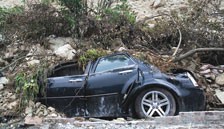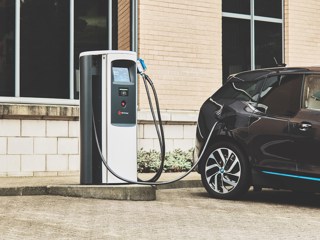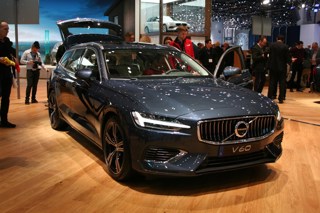The impact of March’s earthquake and tsunami which devastated Japan continues to be felt across the UK automotive industry.
While little in the way of actual car assembly was affected, countless suppliers were. Numerous brands are still reporting problems getting adequate numbers of selected components, ranging from paint to electronic hardware.
It means model ranges have been revised – and in some cases axed – and delivery times extended. But how is that impacting on the franchised retail network? Do manufacturers have procedures in place to support dealers and what’s happened to sales targets?
Some manufacturers say they have escaped unscathed – Hyundai, Kia, Mazda, Mercedes, Skoda and Volkswagen – but our A-Z of the rest brings you the latest details.
Alfa Romeo
Due to limited new parts supply, Alfa briefly closed the order books on one Alfa MiTo powertrain. The issue was quickly resolved and dealer targets remain unaffected.
Audi
Like many manufacturers, Audi has had issues with certain metallic and pearl-effect paint pigments. It’s due to the scarcity of xirallic, a constituent of these finishes.
“Wherever possible we are recommending the closest available alternative for customers,” said a spokesman. There are also restrictions on the Audi Parking System Advanced because of a lack of reversing camera components.
The necessary auxiliary hardware is being factory-fitted, but without the actual camera. Dealers will retro-fit that at no extra cost at a later date.
Some active customer orders have been delayed, but lead times in general remain stable.
BMW/Mini
Again, it’s the xirallic paint that’s causing problems.
“Currently there are some factory restrictions, but these are understood to be short-term and are not permanent changes,” said a spokesman.
“We have adopted an approach of managing these restrictions via the dealer network on a case-by-case basis, rather than through a blanket change to the product library files and option availability.”
Citroën
Citroën UK says it has experienced a very small number of minor supply constraints on low-volume models, but couldn’t give details. It says the situation has “virtually returned to normal” with dealers and customers remaining largely unaffected.
Fiat and Chrysler/Jeep
Restrictions on the metallic paint palette have been enforced by HQ, but that’s the only reported problem. Fiat says no special support measures have been put in place and the disaster has had no impact on dealer new car sales targets.
Ford
When the scale of the disaster became clear Ford pulled forward planned downtime at its Genk plant in Belgium, where Mondeo, Galaxy and S-Max are built. The change was a precautionary measure to ensure future parts availability, and meant production was largely unaffected
Restrictions have been placed on some colours, though Ford says it’s caused minimal disruption because they weren’t popular shades. Ice White is now available again on Mondeo, S-Max, Galaxy and Kuga, but dealers aren’t currently taking orders for Lime Light on C-Max and Blush on Ka. Supplies of its 2.0-litre diesel engine are running short, but that’s due to popularity rather than the Japan situation.
Honda
Honda was badly affected and took all surplus stock into a central pool. Dealers were left with a number of vehicles appropriate to their showroom size and performance. The stock cars were then matched to existing customer orders. Honda says the situation is significantly improving across the whole car range.
“Supply issues have affected Jazz (pictured) and the launch of 2012 model Accord, which has been delayed by a few months,” said a spokeswoman.
“Order books for that model will be open later in July and the launch of the all-new Civic remains on track.”
An extra 10,000 cars have been secured for the UK market, and bosses envisage dealers will be back to normal stock levels and full availability of product by October.
Infiniti
Customer deliveries of the M hybrid are being delayed until September because the Iwaki factory which makes petrol engines suffered badly in the disaster. Only around 20 cars had been built when the earthquake hit. As the vast majority of UK sales are diesel, and that engine comes from France, dealer supply and targets aren’t affected.
Jaguar Land Rover
There was a temporary disruption to xirallic paint supply to both Jaguar and Land Rover, which meant for a short time not all colours within the advertised palette were available. Dealers offered customers alternatives during this period, and the supply issue has now been resolved.
Mitsubishi
Supply has been relatively unaffected so far and with four months’ worth of cars usually in stock, the UK importer believes things should remain that way. Initially there were concerns about components for Bluetooth and the Mitsubishi Motors Communication System, but customers haven’t been affected.
“We haven’t had to revise our model range but, looking ahead, there may be restrictions on some colours and derivatives,” said a spokeswoman.
She said that because of an issue with ECU availability it’s possible some diesel engines in the range will be in limited supply.
Nissan
Nissan has been one of the worst affected companies. Dealers have been forced to axe the Murano from the UK range until further notice and restrict orders of certain auto models. Lead times are running slightly higher, at up to 20 weeks.
“We see dealer profitability and customer satisfaction as paramount to the continued success of the franchise, even in a crisis such as this,” said a spokesman.
“Consequently we have ensured that we prioritise supply through dealers and have cancelled any internal use vehicles such as company cars.”
Counter-measures, including local component sourcing until the main supplier is back to normal, have been taken to make sure new car and spare parts continue to be available.
Peugeot
The now familiar paint problems have been sorted, but Peugeot still has a supply issue with components used in the 2.0-litre 140 engine with manual transmission, as seen in the new 508. The same is true of parts for the 2.0-litre 163 automatic in the same car, so for the forseeable future dealers are offering a 2.0-litre 163 manual instead.
Renault
As with alliance partner Nissan, Renault has taken a heavy hit. Initially Bluetooth was removed as a factory-fit item from most models, but has now been reinstated. Scenic Dynamique with the optional Bose audio pack and Laguna GT Line were both unavailable to order for a short period of time, but are now back to normal. Sales targets were suspended during April and, in conjunction with the Renault Dealer Association, a centralised stock management system was implemented to ensure supply was fair.
A Renault spokesman said it had been helping dealers to manage customer expectations.
“Should the delivery date be exceeded, dealers are keeping customers mobile with a loan car or supporting their part-exchange value.
“We also supported the network with an extensive aftersales package,” the spokesman said.
Subaru
Parts supply is unaffected and no revisions have been made to the model line-up. However, UK importer IM Group has reassessed volumes based on the current supply situation and each dealer now has an individual allocation of vehicles for the remainder of the year. Dealers will be getting more stock soon, including around 300 cars this month as improvements in the supply chain continue.
This is lower than normal, but is an improvement on initial predictions.
“All models continue to be in good supply with the only potential shortages applying to the Forester with the new diesel engine,” said a spokesman.
“Subaru UK has taken steps to support the dealers through this period by reducing stocking costs and by matching factory orders as close as possible to end-user demand. We anticipate normal ordering and delivery processes will be resumed by 2012.”
Suzuki
As the majority of UK market models are manufactured in Hungary and India, and these plants have a network of local suppliers, production was largely unaffected. Jimny and Grand Vitara do come from Japan, and supplies of ECU and brake components were hit. Dealers in rural areas who sell more of these have been liaising with Suzuki GB to manage demand and customer expectation while keeping delays to a minimum.
“It’s meant no revision of dealer targets and we aim to fulfill deliveries of the affected models as soon as possible,” said a spokesman.
Toyota
Toyota’s supply chain was also badly affected, with more than 600 component plants damaged. There have been no restrictions on service parts, but production of 40,000 vehicles across Europe was delayed. The Burnaston plant returned to full production capacity in June and Japanese factories are now 90% or higher.
“With no impact on March sales and a return to normal supply ahead of a busy September, we expect the full year sales to be unchanged,” said a spokesman.
He added that dealers had been supported by the temporary suspension of delivery of cars intended for the employee use scheme, in order to help meet customer demand.
Vauxhall
Minor issues with parts supply did occur, but Vauxhall said the little time that was lost in production across Europe wasn’t sufficient to cause more than a few days delay to some customer deliveries.
“We are lucky in the UK as Astra ST production at Ellesmere Port was protected because the vehicle is in such great demand across Europe,” explained a spokesman.
"We had priority supply of ECUs which were the biggest challenge for the company.”
He added that the Luton plant had lost a few Vivaro production days, mainly due to a dispute at a French supplier unconnected with the Japanese situation.
Volvo
Again, it’s the pigment flakes within certain metallic paints which have led to restrictions on a few exterior colours. “Other than that, we have been able to manage supply and demand of both components for manufacture and cars for customers,” confirmed a spokesman. “It’s not had any detrimental effect on sales or targets.”


















Login to comment
Comments
No comments have been made yet.